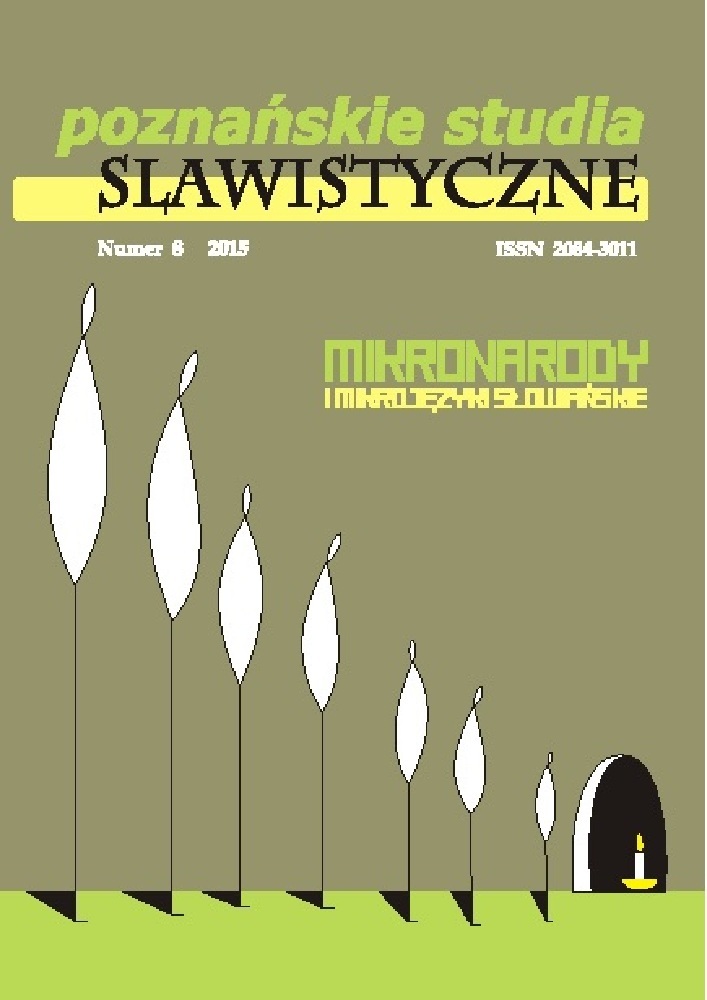Abstrakt
The term migration is used to describe a type of human behavior with immediate social, cultural, economic and political consequences. The researched cross-border labor mobility of the Karakachans in Bulgaria in the post socialist period affects more than 90% from the Karakachan families in only a few years. This problem is pressing concerning the protectional Greek policy towards the Karakachan community from the beginning of the 1990s and the following mutual related migratory and identity-processes. Subjects of the present research are the Karakachans in Bulgaria, the Bulgarian people married to Karakachans and children from mixed marriages. The topics of the research include the various circumstances and factors for their labor mobility in Greece after 1989. The basic aim of this work is to explain the problem about the origin of researched labor mobility, which should answer the questions why it is possible and very probable. As a result, the social-economic, political and cultural circumstances which are important for the origin and the development of the labor mobility of the Karakachans in Bulgaria since 1989, are being depicted and investigated here.
Bibliografia
Беновска-Събкова М., 2001, Политически преход и всекидневна култура, София.
Вълчинова Г., 1998, Гърци, в: Общности и идентичности в България, съст. А. Кръстева. Петесктон София, c. 207–220.
Димитров Н., 2014, Трудова мобилност на каракачаните в България в постсоци-алистическия период, София, дисертационно изследване.
Димитрова Т., 2011, Съвременни миграционни групи в Гърция, София, дисертаци-онно изследване.
Калинова Е., Баева И., 2006, Българските преходи 1939–2005, София.
Никова Е., 2012, Гърция: десетилетие на възход и крушение, в: Балканите през първото десетилетие на 21. век, ред. А. Костов, Н. Екатерина, София, c. 195–220.
Пимпирева Ж., 1998а, Каракачани, в: Общности и идентичности в България, ред. А. Кръстева, София, c. 243–259.
Пимпирева Ж., 1998б, Каракачаните в България, София.
Пимпирева Ж., 2008, Каракачаните в постсоциалистическа България, в: В света на човека, ред. Д. Маджаров, С. Красимир, Сборник в чест на проф. д.и.н. Иваничка Георгиева, т. 1, Университетско издание „Св. Климент Охридски”, София, c. 83–95.
Райчев А., Стойчев К., 2008, Какво се случи? Разказ за прехода в България и малко след него, София.
Фотев Г., 2009, Ценности срещу безпорядък, София.
-но Постановление на Министерския съвет от 15 март 1954 г. относно ус-тановяването на каракачаните на постоянно местожителство, в: Извес-тия на Президиума на Народното събрание, бр. 25, година 5, 26.03.1954.
Kaser K., 2005, Klientelismus: Positive Potenziale und Risken eines tradizionellen Modells sozialer Beziehungen, в: Bilanz Balkan, пер. M. Daxner, P. Jordan, P. Leifer, K. Roth, E. Vyslonzil, Wien, s. 54–67.
Minev D., 1999, Armut und soziale Transformation, в: Bulgarien im Übergang. Sozialwissenschaftliche Studien zur Transformation, пер. H.L. Krämer, C. Stojanov, Bergisch Gladbach, s. 321–348.
Roth K., 2005, Institutioneles und persönliches Vertrauen. Südosteuropa auf dem schwierigen Weg in die Europäische Union, в: Bilanz Balkan, пер. M. Daxner, P. Jordan, P. Leifer, K. Roth, E. Vyslonzil, Wien, s. 47–53.
Licencja

Utwór dostępny jest na licencji Creative Commons Uznanie autorstwa – Bez utworów zależnych 4.0 Międzynarodowe.
